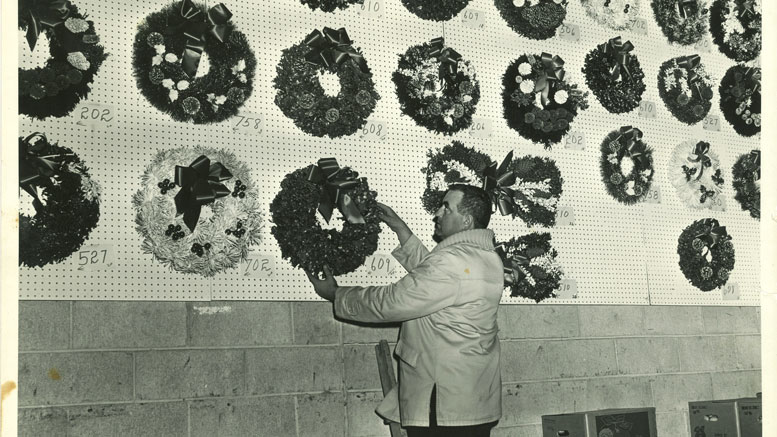For John Vena Inc., Opening Doors Led To New Opportunities
May 16, 2023 | 3 min to read
From the 1950s to the 1990s, John Vena Inc. offered a wide range of floral products, supported by independent retailers. Despite early successes, declining demand for floral ingredients led to a strategic shift by company president John Vena and partner Charlie Pigliacelli, phasing out floral lines to focus on specialty produce like Dutch greenhouse peppers and Israeli tomatoes. This pivot aligned with growing consumer interest in quality ingredients, positioning the company for future growth.

Originally printed in the November 2022 issue of Produce Business.
From the 1950s through the 1990s, Philadelphia-based John Vena Inc. (JVI) extended beyond its produce line and sold several lines of potted flowers, landscape plants, hanging baskets, and vegetable and bedding plants for all the seasonal and holiday merchandising occasions, including chrysanthemums for Thanksgiving and poinsettias for Christmas.
“It was a big program for us,” says John Vena, the company’s current president.
In those days, most consumers purchased holiday flowers from their local mom-and-pop florist, garden center, corner grocery store, produce specialty store, street vendor, farmers market, or road stand — and all of those kinds of independent retailers came to JVI for flowers and plants.
“When my brother and I were big enough to help out on weekends and school holidays, we used to go in to help unload trucks full of potted plants,” says Vena. “In those days, the plants were loaded loose on removable deck boards, not in boxes. We took them off the trucks, one by one, onto hand trucks and then, one by one, onto shelves.”
“One of my first tasks after joining the company full-time in 1976 was to collect price lists from all our flower shippers for the coming spring holidays and create a master list for my dad to review,” he adds.
As an extension of that program, Vena’s father began experimenting with artificial holiday wreaths. He secured an exclusive to sell the Novelty Wreath brand of artificial wreaths in the produce market at the old South Philly Food Distribution Center. The wreaths were manufactured in Philadelphia by the Ed London Wreath Company. They were a brand new company at the time, but are still in business today — two owners later — selling silk flowers.
“My dad is pictured here putting the final touches on our 1962 Novelty Wreath holiday display,” notes Vena. “What you don’t see pictured are the rows of poinsettias, pine rope, and fresh balsam wreaths that would have been on display along the adjacent walls of our showroom. As a boy, I remember helping him store the unsold wreaths in a basement for the following year. My father wasn’t afraid to try something new, especially when it enjoyed such a generous shelf life, but the line had limited success for us and our customers. He and the manufacturer parted ways after four or five seasons.”
The company continued to carry flowers and plants, along with its produce into the 1980s, even experimenting with an innovative new strategy to ship Florida-grown flowers via railroad “piggy-back” on existing train routes. But toward the end of the decade, the customer base for floral began shrinking rapidly as independent retailers retired or were replaced by big-box stores and housing developments.
“At the same time, we were growing our greenhouse lines,” recalls Vena. “My partner, Charlie Pigliacelli, and I had established new programs to import items like Dutch greenhouse bell peppers and Israeli on-the-vine tomatoes. At the time, those were brand new to the U.S. market — truly specialty items. As we continued to build momentum on our greenhouse program and add new items to our specialty line, it became clearer that the floral program wasn’t sustainable for us. Eventually, we phased out our floral and holiday lines to focus on our year-round specialty programs. As my father always liked to say: ‘When one door closes, another door opens.’”
“And he was right. We closed the door on floral and opened it on specialty at just the right time,” says Vena. “As we were building our new program, chefs and retailers were becoming more interested in the quality and provenance of their ingredients. We were well situated to support and partake in the trend. Since then, we’ve continued to follow the specialty market as it’s grown to include a world’s worth of gourmet, exotic and tropical items. We’ve also grown to include our custom ripening and repacking services as part of our specialty offering.”
“But who knows when this door may close, and what door may open next?”
8 of 14 article in Produce Business May 2023

